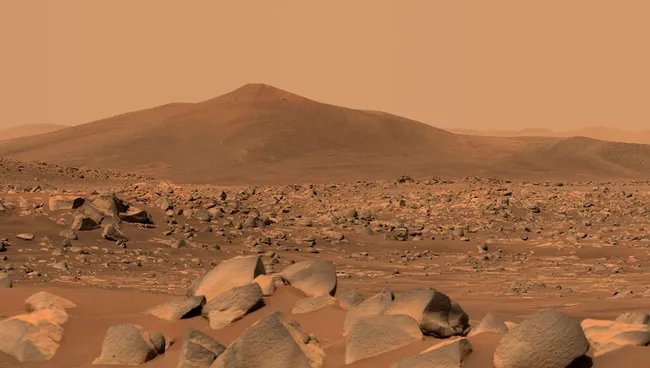Mars, once home to flowing rivers and a thick atmosphere, now presents a pretty difficult environment for any ambitions of colonization. Its smaller size led to a rapid cooling of the core, which in turn caused the planet to lose its magnetic field along with most of its atmosphere. What remains is a dry and desolate place filled with toxic perchlorates, making agriculture on Mars a real challenge.
NASA and SpaceX’s Plans
NASA’s Artemis program aims to establish a human presence on Mars that isn’t reliant on Earth, while Elon Musk and SpaceX are planning to create a city of a million residents there within twenty years. However, a major obstacle exists: those annoying perchlorates scattered throughout the Martian soil.
Perchlorates are harmful salts composed of chlorine and oxygen, and they exist on Mars in concentrations 1,000,000 times greater than those found on Earth. This pollution means that the Martian regolith—loose material on the surface like dust and sand—won’t support plant growth. Unlike Earth’s nutrient-rich soil, Martian dirt lacks the necessary elements for plants to flourish.
The Challenge of Farming on Mars
According to Rafael Loureiro, a plant stress expert from Winston-Salem State University, there’s no sidestepping the perchlorate problem if humans want to farm on Mars. While hydroponics may sustain small teams for a limited time, it’s impractical for a growing population. The only viable long-term solution is to modify the Martian soil for agricultural use.
Scientists are investigating several methods to remove perchlorates from Martian soil:
Microbial remediation is seen as the most promising approach for both Mars and Earth. In fact, NASA and the National Science Foundation are already financing research on this concept, hoping it could aid Mars and help restore damaged areas on Earth.
Research Efforts in Microbial Remediation
Anca Delgado, a microbiologist at Arizona State University’s Biodesign Institute, leads a team dedicated to this research. Her work builds on previous efforts to clean toxic substances on Earth, such as those used in dry cleaning and metal degreasing.
Delgado’s group is focused on cultivating microbes that can thrive on perchlorates, breaking them down into non-toxic substances. This process not only eliminates toxins but also contributes to the development of organic matter in the soil, which is critical for healthy plant growth.
With $1.9 million in funding from the NSF and NASA, the project involves collaboration between Arizona State University, the University of Florida, and the Florida Institute of Technology. Each institution tackles a distinct aspect of the problem—from reducing perchlorates to increasing organic matter and examining plant growth in the treated Martian soil.
Given that scientists lack actual Martian soil for experimentation, they’re using Mars Global Simulant (MGS-1), which replicates the characteristics of soil samples examined by the Curiosity rover.
As the quest to land humans on Mars progresses, addressing the perchlorate issue is crucial for establishing sustainable farming there. Discoveries from this research could even assist in tackling some of Earth’s most challenging agricultural issues, turning barren and polluted land into fruitful farmland.


Leave a Reply